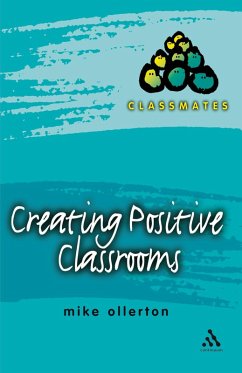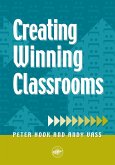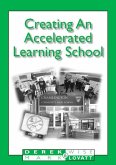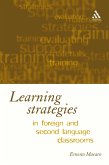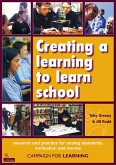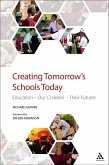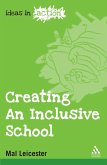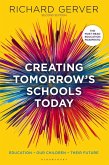Mike Ollerton
Creating Positive Classrooms (eBook, PDF)
10,95 €
10,95 €
inkl. MwSt.
Sofort per Download lieferbar

5 °P sammeln
10,95 €
Als Download kaufen

10,95 €
inkl. MwSt.
Sofort per Download lieferbar

5 °P sammeln
Jetzt verschenken
Alle Infos zum eBook verschenken
10,95 €
inkl. MwSt.
Sofort per Download lieferbar
Alle Infos zum eBook verschenken

5 °P sammeln
Mike Ollerton
Creating Positive Classrooms (eBook, PDF)
- Format: PDF
- Merkliste
- Auf die Merkliste
- Bewerten Bewerten
- Teilen
- Produkt teilen
- Produkterinnerung
- Produkterinnerung

Bitte loggen Sie sich zunächst in Ihr Kundenkonto ein oder registrieren Sie sich bei
bücher.de, um das eBook-Abo tolino select nutzen zu können.
Hier können Sie sich einloggen
Hier können Sie sich einloggen
Sie sind bereits eingeloggt. Klicken Sie auf 2. tolino select Abo, um fortzufahren.

Bitte loggen Sie sich zunächst in Ihr Kundenkonto ein oder registrieren Sie sich bei bücher.de, um das eBook-Abo tolino select nutzen zu können.
This Classmate looks at the ways in which teachers can change and improve their teaching techniques by looking at a variety of innovative and fun ideas
- Geräte: PC
- mit Kopierschutz
- eBook Hilfe
- Größe: 3.12MB
Andere Kunden interessierten sich auch für
![Creating Winning Classrooms (eBook, PDF) Creating Winning Classrooms (eBook, PDF)]() Peter HookCreating Winning Classrooms (eBook, PDF)30,95 €
Peter HookCreating Winning Classrooms (eBook, PDF)30,95 €![Creating An Accelerated Learning School (eBook, PDF) Creating An Accelerated Learning School (eBook, PDF)]() Mark LovattCreating An Accelerated Learning School (eBook, PDF)17,95 €
Mark LovattCreating An Accelerated Learning School (eBook, PDF)17,95 €![Learning Strategies in Foreign and Second Language Classrooms (eBook, PDF) Learning Strategies in Foreign and Second Language Classrooms (eBook, PDF)]() Ernesto MacaroLearning Strategies in Foreign and Second Language Classrooms (eBook, PDF)52,95 €
Ernesto MacaroLearning Strategies in Foreign and Second Language Classrooms (eBook, PDF)52,95 €![Creating a learning to learn school (eBook, PDF) Creating a learning to learn school (eBook, PDF)]() Toby GreanyCreating a learning to learn school (eBook, PDF)15,95 €
Toby GreanyCreating a learning to learn school (eBook, PDF)15,95 €![Creating Tomorrow's Schools Today (eBook, PDF) Creating Tomorrow's Schools Today (eBook, PDF)]() Richard GerverCreating Tomorrow's Schools Today (eBook, PDF)14,95 €
Richard GerverCreating Tomorrow's Schools Today (eBook, PDF)14,95 €![Creating an Inclusive School (eBook, PDF) Creating an Inclusive School (eBook, PDF)]() Mal LeicesterCreating an Inclusive School (eBook, PDF)11,95 €
Mal LeicesterCreating an Inclusive School (eBook, PDF)11,95 €![Creating Tomorrow's Schools Today (eBook, PDF) Creating Tomorrow's Schools Today (eBook, PDF)]() Richard GerverCreating Tomorrow's Schools Today (eBook, PDF)17,95 €
Richard GerverCreating Tomorrow's Schools Today (eBook, PDF)17,95 €-
-
-
This Classmate looks at the ways in which teachers can change and improve their teaching techniques by looking at a variety of innovative and fun ideas
Produktdetails
- Produktdetails
- Verlag: Bloomsbury UK eBooks
- Seitenzahl: 112
- Erscheinungstermin: 20. März 2004
- Englisch
- ISBN-13: 9781441134196
- Artikelnr.: 40780721
- Verlag: Bloomsbury UK eBooks
- Seitenzahl: 112
- Erscheinungstermin: 20. März 2004
- Englisch
- ISBN-13: 9781441134196
- Artikelnr.: 40780721
- Herstellerkennzeichnung Die Herstellerinformationen sind derzeit nicht verfügbar.
Mike Ollerton taught for 25 years in schools and 10 years in teacher training. He is now a freelance consultant based in the UK.
1. What makes teaching difficult and what makes teaching fantastic- why
have you got into teaching? what do you think now? What are your
aspirations for the future?
2. Beliefs and Values- What beliefs and values do you take into the
classroom? What impact does this have on your teaching and students'
learning.
3. What influence can a teacher have?- What are the different
responsibilities that teachers have and what are they capable of impacting
on?
4. The games people play- looking at the Parent, Adult, Child (PAC)
relationship and its implications
5. The case against school uniform- What happens when we try to put kids
into uniform
6. On not caring if students do know that my middle name is Herbert- What
personal details might a you be content to share with students and what
would feel uncomfortable or unprofessional?
7. Exploring teaching strategies- Looking at the vast range of strategies
that you can use from the old to the new
8. Sharing ideas with colleagues- Other teachers are your own best
resource, how to share expertise within and across subject areas
9. What place do policies have in school?-Exploring the difference between
lists and vision and how the latter is more important than the former
10. What can we do less of in order to spend more time on the important
things?- Suppose every teacher in the land refused to do any work after
5pm. Would this improve the education of our children or strongly undermine
it?
11. Closing down the school timetable for a week.- From kite-making to
learning to play Bridge. What kind of activities might a school contemplate
doing as an alternative to the normal timetable?
have you got into teaching? what do you think now? What are your
aspirations for the future?
2. Beliefs and Values- What beliefs and values do you take into the
classroom? What impact does this have on your teaching and students'
learning.
3. What influence can a teacher have?- What are the different
responsibilities that teachers have and what are they capable of impacting
on?
4. The games people play- looking at the Parent, Adult, Child (PAC)
relationship and its implications
5. The case against school uniform- What happens when we try to put kids
into uniform
6. On not caring if students do know that my middle name is Herbert- What
personal details might a you be content to share with students and what
would feel uncomfortable or unprofessional?
7. Exploring teaching strategies- Looking at the vast range of strategies
that you can use from the old to the new
8. Sharing ideas with colleagues- Other teachers are your own best
resource, how to share expertise within and across subject areas
9. What place do policies have in school?-Exploring the difference between
lists and vision and how the latter is more important than the former
10. What can we do less of in order to spend more time on the important
things?- Suppose every teacher in the land refused to do any work after
5pm. Would this improve the education of our children or strongly undermine
it?
11. Closing down the school timetable for a week.- From kite-making to
learning to play Bridge. What kind of activities might a school contemplate
doing as an alternative to the normal timetable?
1. What makes teaching difficult and what makes teaching fantastic- why
have you got into teaching? what do you think now? What are your
aspirations for the future?
2. Beliefs and Values- What beliefs and values do you take into the
classroom? What impact does this have on your teaching and students'
learning.
3. What influence can a teacher have?- What are the different
responsibilities that teachers have and what are they capable of impacting
on?
4. The games people play- looking at the Parent, Adult, Child (PAC)
relationship and its implications
5. The case against school uniform- What happens when we try to put kids
into uniform
6. On not caring if students do know that my middle name is Herbert- What
personal details might a you be content to share with students and what
would feel uncomfortable or unprofessional?
7. Exploring teaching strategies- Looking at the vast range of strategies
that you can use from the old to the new
8. Sharing ideas with colleagues- Other teachers are your own best
resource, how to share expertise within and across subject areas
9. What place do policies have in school?-Exploring the difference between
lists and vision and how the latter is more important than the former
10. What can we do less of in order to spend more time on the important
things?- Suppose every teacher in the land refused to do any work after
5pm. Would this improve the education of our children or strongly undermine
it?
11. Closing down the school timetable for a week.- From kite-making to
learning to play Bridge. What kind of activities might a school contemplate
doing as an alternative to the normal timetable?
have you got into teaching? what do you think now? What are your
aspirations for the future?
2. Beliefs and Values- What beliefs and values do you take into the
classroom? What impact does this have on your teaching and students'
learning.
3. What influence can a teacher have?- What are the different
responsibilities that teachers have and what are they capable of impacting
on?
4. The games people play- looking at the Parent, Adult, Child (PAC)
relationship and its implications
5. The case against school uniform- What happens when we try to put kids
into uniform
6. On not caring if students do know that my middle name is Herbert- What
personal details might a you be content to share with students and what
would feel uncomfortable or unprofessional?
7. Exploring teaching strategies- Looking at the vast range of strategies
that you can use from the old to the new
8. Sharing ideas with colleagues- Other teachers are your own best
resource, how to share expertise within and across subject areas
9. What place do policies have in school?-Exploring the difference between
lists and vision and how the latter is more important than the former
10. What can we do less of in order to spend more time on the important
things?- Suppose every teacher in the land refused to do any work after
5pm. Would this improve the education of our children or strongly undermine
it?
11. Closing down the school timetable for a week.- From kite-making to
learning to play Bridge. What kind of activities might a school contemplate
doing as an alternative to the normal timetable?
